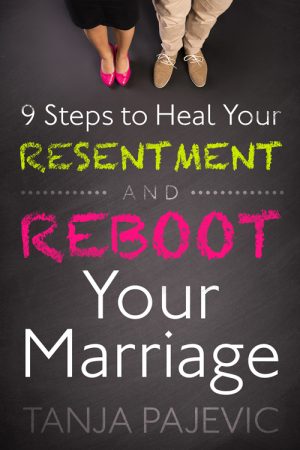Starting (or restarting) a writing routine can be one of the most stressful parts of writing. Here are 5 tips to get you up and running as quickly and easily as possible.
Tip #1: Don’t wait for inspiration.
 One of the biggest myths out there is that writers wait for inspiration, which then beams down, God-like, to the chosen few. Whoa, Nelly. Nothing could be further from the truth.
One of the biggest myths out there is that writers wait for inspiration, which then beams down, God-like, to the chosen few. Whoa, Nelly. Nothing could be further from the truth.
Writing, at its essence, is work. It’s something you sit down and do, over and over. And the best writers are those who sit down, day in and day out, to get their stories onto the page. Writing, revising, revising again. Check, check and check.
This is the cold, hard, not-so-sexy truth of writing. Like lots of other things in life (eating well, exercising, etc.), a consistent writing practice is a habit. Nothing more, nothing less.
Tip #2: Don’t wait until you have time.
Lordy, lordy. This one comes closely on the heels of writing/dream killer #1 (waiting for inspiration). I can’t tell you how many people think it’ll be easy to sit down and crank out a book over a) vacation or b) once they’re retired.
There are two problems with this way of thinking:
- Writing is a process, one that involves a learning curve. Writing a story seems pretty simple—until you sit down to write it. That’s when you realize that there are a whole lotta rules when it comes to getting your story down on the page—ones you might not understand right off the bat. A story doesn’t spring, fully realized, from the womb. There’s a gestation process. And learning the proper craft and technique are important parts of the writing/maturing process.
TIP: The reason most published writing seems so clear and easy to replicate is because of the revision process. Published writers go through multiple drafts before a piece is finished.
That’s why I don’t want you to wait. Get started now, so that you can learn as you go, nailing down the proper craft and technique. The best way to get to the finish line is to get started and get support, course-correcting as you go.
- Fear (and your inner critic) will start doing crazy things if you try to sit down and write for two weeks (or two months) straight, especially if you haven’t built up your writing muscles. We all know the story of the retiree who goes a little cray-cray when they find themselves facing day after unstructured day. It’s the same with writing. Start small, and build up from there.
Tip #3: Create a writing schedule that works for you.
Consistency and momentum are KEY to completing a piece of writing. Therefore, I recommend you create a consistent writing routine that works for you. What can you realistically commit to, given everything else you have going on in your life (i.e.: work, family, friends, volunteer/community commitments, etc.). Hint: Realistically is the key word here.
 If you can set aside 30 minutes/ 3x a week, fabulous. If you can set aside 15 minutes/ 5x a week, great! But don’t try to do the weekend warrior thing by blocking off 4 hours to write, then burning out and rebelling (um, yup. Been there.).
If you can set aside 30 minutes/ 3x a week, fabulous. If you can set aside 15 minutes/ 5x a week, great! But don’t try to do the weekend warrior thing by blocking off 4 hours to write, then burning out and rebelling (um, yup. Been there.).
Start small, my dear, and build up from there.
TIP: How much time you choose depends on what you’re trying to accomplish. If you’re exploring your story, then 30 minutes/3x a week might be plenty. But if you’re working on a book, you’re going to need bigger chunks of time. For my book clients, I recommend carving out 1-1.5 hours of writing time 5x a week. If you can only do 30 minutes/ 3x a week, that’s helpful, too.
Take a moment to declare your writing schedule in your journal.
Tip #4: Create a writing ritual.
Once you’ve blocked off your writing time, create a starting and stopping ritual. This will help anchor your writing habit, as well as help you bypass the fight-flight trigger that sometimes occurs when we’re writing about challenging events.
For a simple starting ritual, you might sit down with a cup of coffee/tea, light a candle, set a timer and then start writing.
Take a moment to jot down some ideas that call to you.
Next, let’s create a closing ritual to complete your writing session. Perhaps you’ll blow out the candle, close your computer and take a walk around block. Your ritual doesn’t need to be big or fancy, it just needs to work for you.
Take a moment to jot down a few ideas for your closing ritual.
When you’re done writing for the day, be sure to celebrate by pumping your fists in the air, doing a happy dance, etc. This anchors the win in your body, as well as starts to cements it as a habit, setting you up for success. After all, a book (or an essay, blog post or any other completed piece of writing) is a series of small successes, each one built upon the last.
Tip #5: Rinse and repeat.
The key to completing any piece of writing is to write consistently, keeping up the momentum. The longer you stay away from your writing, the harder it will be to reenter.
Instead, keep your writing practice manageable and consistent. Small baby steps are what will get you to the finish line, truly. Think tortoise, not hare.
I’d love to hear which tip(s) resonated with you. Is there anywhere you need to course-correct? If so, what’s your next step? Leave a comment below or email me at tanja@tanjapajevic.com.
Wishing you a lovely writing week!
Tanja
P.S.: If you have a friend who could benefit from my posts, please forward these notes or invite them to join our community here.


